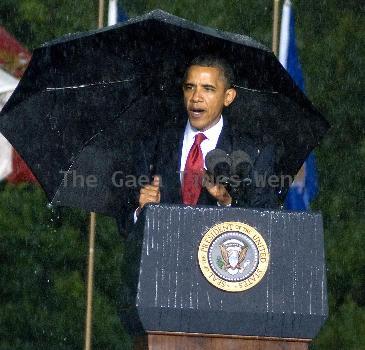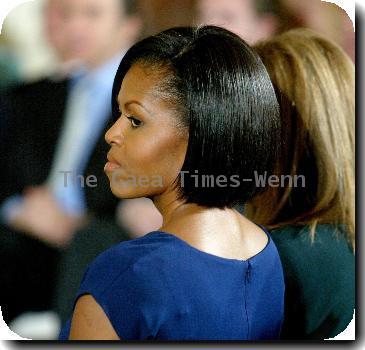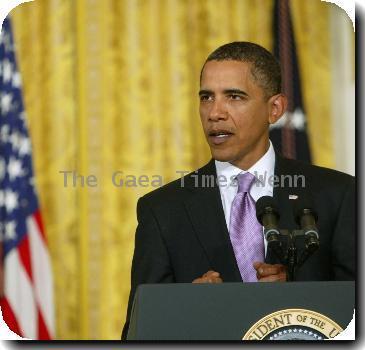Brazil’s popular president leaves nation confident as 2 unknowns vie to replace him
By Bradley Brooks, APFriday, June 11, 2010
Brazil’s mood confident as 2 unknowns vie to Silva
RIO DE JANEIRO — Law student Marcelle Ubaldo talks about Brazil’s pending presidential election with a tone not heard from voters in generations: that of confident optimism.
Ubaldo says she’ll vote to keep the ruling party in power, but it doesn’t really matter who wins: “We are on the rise and it is going to continue.”
Like nearly 80 percent of Brazilians, she credits President Luiz Inacio Lula da Silva for the nation’s unparalleled clout on the global stage and a stable, growing economy.
By the time Rio de Janeiro hosts the 2016 Olympic Games, Brazil is forecast to be the world’s fifth-largest economy. It recently helped broker a nuclear-fuel swap deal with Iran, is the undisputed heavyweight in Latin American economics and politics and — with Silva at its helm — has become a moral voice of the developing world.
The two top contenders to replace Silva are little known on the world stage, but that doesn’t worry many.
“The Brazilian national soccer team, once Pele retired, was still a great team. There was just no Pele,” said Peter Hakim of the Inter-American Dialogue, comparing the nation’s politics with its sports.
Dilma Rousseff, Silva’s former chief of staff and hand-picked candidate, and Jose Serra, who has run for president unsuccessfully before, are in a dead heat going into their parties’ nominating conventions this weekend, according to recent polls.
While they may lack Silva’s charisma, their reputations as skilled politicians and sound bureaucratic managers seem only to add to Brazil’s newfound stability. Global financial markets were so scared by the left-wing Silva when he was first elected in 2002 that they nearly drove the nation to insolvency. Now markets are treating the October presidential election as a nonevent.
“This could be an opportunity under Serra or Dilma to institutionalize within Brazil and on the world stage this new fact on the ground of Brazil being an important actor, though in a lower key way,” said Julia Sweig, director for Latin American studies at the Council on Foreign Relations.
Rousseff represents the ruling Workers Party that has been in power for eight years and institutionalized popular social programs targeting Brazil’s poor. Serra is with the more centrist Brazilian Social Democracy Party, which ruled for the eight years before Silva under President Fernando Henrique Cardoso.
First round voting is on Oct. 3, followed by a runoff if necessary. The winner takes office on Jan. 1. The Green Party is running the other significant candidate, environmentalist Sen. Marina Silva — no relation to the president — who is polling at 10 percent.
Rousseff, 62, who would be Brazil’s first woman president, is an economist by training and has never held elected office. She served as Silva’s energy minister from 2003 to 2005, then as his chief of staff, essentially overseeing daily operations of the administration until a few months ago, when she quit to campaign.
Her toughness inside the Silva administration has earned her the nickname “Iron Lady” — a moniker also bolstered by her past as an armed guerrilla resisting the 1964-85 dictatorship. In 1970 she was arrested, and for three years was imprisoned and tortured.
While Rousseff lacks Silva’s outward flair, supporters note that Silva was not the internationally known figure — the man President Barack Obama called the “most popular politician on earth” — when he was first elected, either.
“Early in his career, when he was a radical, it scared people,” Ubaldo said. “Once he learned to direct that energy in a way that the people felt comfortable with, he was a great success. Dilma has learned this … and I think she’ll govern in the same way.”
Serra, 68, a former congressman and governor of Sao Paulo state, was soundly defeated by Silva in the 2002 presidential election. He, too, opposed the military regime, but turned to politics rather than armed resistance.
After heading a national student group that opposed the regime, he was forced into exile in Chile, where he earned a master’s degree. He then went to the U.S., where he earned a doctorate in economics at Cornell and spent two years at Princeton’s Institute for Advanced Study. He returned to Brazil in 1978.
Under Cardoso, Silva’s predecessor, Serra served as planning minister, then health minister, winning praise for defying the pharmaceutical lobby to market cheap generic drugs and free anti-AIDS medicine. As Sao Paulo governor, he ran the state known as Brazil’s economic engine.
Supporters say he would carry on the legacy of Cardoso, who they argue is the man most responsible for Brazil’s current economic success because he privatized many state-run businesses and created a more competitive economy.
“Dilma would take us back to a very state-oriented economy,” said Joao Paulo Barros, a 20-year-old university student and Serra supporter. “Serra is a great academic, a great thinker. He would direct the economy in a more liberal fashion and maintain our competitiveness.”
Beyond economics, analysts say the two would differ in political strategies.
Like Silva, Rousseff is expected to maintain Brazil’s somewhat combative relationship with the U.S. while embracing its adversaries, such as Venezuela’s Hugo Chavez or Iran’s Mahmoud Ahmadinejad.
Serra is expected to tack Brazil’s foreign policy toward the center, in line with the Cardoso years, placing greater importance on political ties to the U.S. and Europe and having little patience for leaders such as Chavez or Ahmadinejad.
“If Brazil’s ultimate goal is to really matter in world affairs, whether defining the terms of trade or climate change agreements or constructing a new financial architecture, it is in their best interest to have a more fluid relationship with Europe and the U.S.,” said Mauricio Cardenas of the Latin America Initiative at the Brookings Institution in Washington.
But they would both hold to the social policies that made Silva popular at home and admired abroad.
Serra has only offered praise for Silva’s popular Bolsa Familia program that pays the poor to keep their children in school. It gave the lower class more buying power and helped lift 19 million Brazilians out of poverty, which in turn helped Brazil weather the global financial crisis better than almost any nation.
Rousseff and Serra “are committed to keeping the broad macroeconomic framework in place, putting a premium on keeping inflation low and maintaining responsible fiscal policies,” said Christopher Garman with the Eurasia Group in Washington.
They may differ in handling Brazil’s vast offshore oil reserves. Rousseff — who served as chairwoman of the board for the state-run oil company Petrobras from 2003 until April — would likely maintain tight state control, while Serra would be more open to partnering with private, foreign oil companies to speed extraction.
The question, Garman said, is who can solidify Brazil’s success.
“What is at stake in this presidential election is how will Brazil utilize its greater economic and international leverage that it has gained over the past five to seven years,” he said. “How will they start to spread their wings on geopolitical issues that they’ve never been a participant of in the past?”
(This version CORRECTS that party conventions are this weekend, sted Saturday.)
Tags: Barack Obama, Brazil, Delaware, Latin America And Caribbean, North America, Political Conventions, Rio de Janeiro, Sao Paulo, South America, United States



